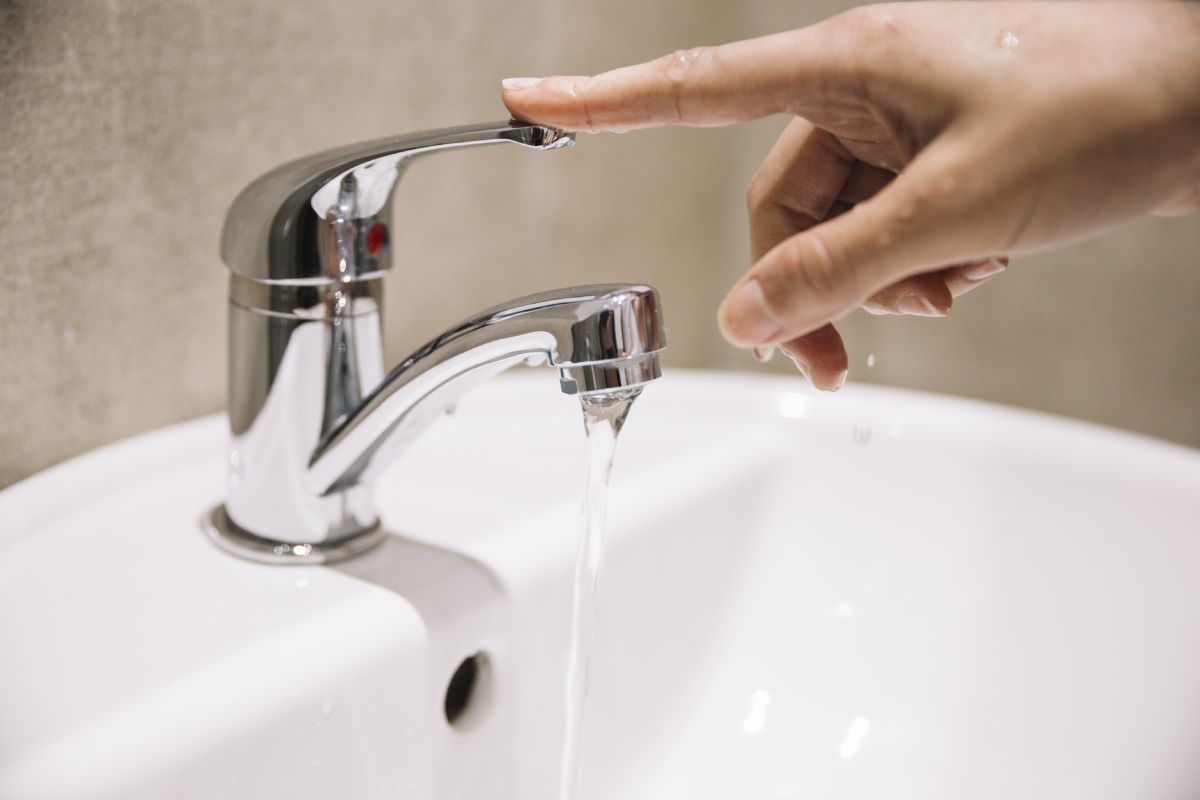Confirmed Tactics for Addressing Low Water Pressure in Your Home
Confirmed Tactics for Addressing Low Water Pressure in Your Home
Blog Article
How do you really feel with regards to 4 Ways to Troubleshoot Low Water Pressure?

Low water stress in your home can be an aggravating issue, influencing whatever from showering to cleaning recipes. If you're experiencing weak water flow, there are numerous possible reasons and options to explore. In this overview, we'll discuss typical factors for low water pressure and functional steps to address the concern efficiently.
Introduction to Low Water Stress
Low water stress takes place when the flow of water from your taps, showers, and other components is weaker than common. This can make day-to-day jobs extra difficult and much less reliable. Understanding the sources of low tide pressure is important to finding the ideal solution.
Typical Causes of Low Tide Pressure
Pipe Obstructions
In time, pipelines can become clogged with natural resource, debris, or debris, limiting the circulation of water. This is an usual problem in older homes with galvanized steel pipes.
Corrosion
Rust within pipes can bring about leakages and decreased water stress. Corrosion buildup can constrict water circulation, especially in aging plumbing systems.
Faulty Stress Regulators
Stress regulatory authorities are in charge of keeping regular water pressure in your house. If they malfunction, it can cause low tide pressure or irregular circulation throughout your home.
Metropolitan Water Issues
Sometimes, the issue lies outside your home. Local water issues, such as main line leaks or maintenance job, can temporarily minimize water stress in your area.
How to Detect Low Tide Pressure
Checking Taps and Fixtures
Beginning by examining the water stress at various faucets and components throughout your home. If the concern is separated to particular areas, it might indicate localized problems.
Checking Pipes
Evaluate noticeable pipes for indicators of leaks, deterioration, or obstructions. Take notice of any kind of unusual noises, such as knocking or rattling pipelines, which might show issues within the plumbing system.
Consulting with a Plumber
If you're unable to determine the cause of low water stress, think about hiring a specialist plumber to conduct an extensive assessment. They can determine underlying concerns and recommend appropriate remedies.
Do It Yourself Solutions to Repair Low Water Stress
Cleansing Aerators and Showerheads
Natural resources can build up in aerators and showerheads, reducing water flow. Eliminate and cleanse these elements frequently to enhance water stress.
Flushing Hot Water Heater
Sediment build-up in the hot water heater can limit flow and decrease performance. Flushing the storage tank regularly assists get rid of sediment and keep ideal efficiency.
Inspecting Pressure Regulatory Authority
Ensure that the pressure regulatory authority is functioning properly. Changing or changing the regulator can help recover correct water stress throughout your home.
Cleaning Clogs in Piping
For minor blockages, attempt using a plumbing snake or chemical drain cleaner to clear blockages in pipes. Beware when using chemicals and follow safety standards.
When to Call a Specialist Plumber
If do it yourself efforts stop working to settle the problem or if you suspect substantial plumbing issues, it's best to look for help from a licensed plumber. They have the knowledge and devices to deal with intricate problems securely and properly.
Safety Nets to Maintain Water Stress
Regular Maintenance
Set up routine upkeep for your plumbing system to prevent issues such as corrosion, leakages, and blockages. Attending to small problems early can help avoid even more considerable fixings later.
Mounting a Stress Booster
Take into consideration mounting a stress booster pump to enhance water pressure in areas with regularly reduced circulation. This can be especially beneficial for multi-story homes or residential properties with high-demand components.
Surveillance Water Use
Be mindful of water use practices and stay clear of ill-using the plumbing system. Easy changes, such as shocking showers and washing lots, can help preserve sufficient water pressure.
Verdict
Dealing with low water stress can be discouraging, yet determining the underlying reasons and applying ideal services can recover ideal flow throughout your home. Whether it's cleaning aerators, inspecting pipes, or talking to a plumber, taking positive actions can guarantee a constant supply of water for your everyday requirements.
FOUR WAYS TO FIX LOW WATER PRESSURE NOW
Turning on a shower or faucet only to find the water comes out in a sad, slow drizzle is never a good feeling. How exactly are you supposed to wash a pan or take a quick shower when it takes 10 minutes just to rinse off a little soap? The good news is that when your water pressure is bad, there's always a cause: typically one that can be easily fixed. Here are some of the most common causes of low pressure and what you can do to fix the issue:
DEBRIS AND MINERAL DEPOSIT BUILDUPS
If you notice low water pressure from just one or two of the fixtures in your house, the problem likely has to do with debris buildup. Water is full of minerals and other debris, all of which can accumulate in your pipes and on your fixtures. This can cause a blockage that affects how much water flows through. To fix this, try filling a small plastic bag with white vinegar, and use a rubber band to hang it around your showerhead or faucet. Let the head of the fixture soak for a few hours, and the vinegar should loosen the deposits.
WATER LEAKS
Leaks are another common cause of low water pressure. If water is flowing out of your plumbing through a hole or crack before it can reach your fixture, the pressure coming out of the faucet or showerhead will be lower. A plumbing professional is your best bet for finding and repairing a leak in your water supply pipes.
Leaks are another common cause of low water pressure. If water is flowing out of your plumbing through a hole or crack before it can reach your fixture, the pressure coming out of the faucet or showerhead will be lower. A plumbing professional is your best bet for finding and repairing a leak in your water supply pipes.
FOUR WAYS TO FIX LOW WATER PRESSURE NOW
Turning on a shower or faucet only to find the water comes out in a sad, slow drizzle is never a good feeling. How exactly are you supposed to wash a pan or take a quick shower when it takes 10 minutes just to rinse off a little soap? The good news is that when your water pressure is bad, there's always a cause: typically one that can be easily fixed. Here are some of the most common causes of low pressure and what you can do to fix the issue:
DEBRIS AND MINERAL DEPOSIT BUILDUPS
If you notice low water pressure from just one or two of the fixtures in your house, the problem likely has to do with debris buildup. Water is full of minerals and other debris, all of which can accumulate in your pipes and on your fixtures. This can cause a blockage that affects how much water flows through. To fix this, try filling a small plastic bag with white vinegar, and use a rubber band to hang it around your showerhead or faucet. Let the head of the fixture soak for a few hours, and the vinegar should loosen the deposits.
WATER LEAKS
Leaks are another common cause of low water pressure. If water is flowing out of your plumbing through a hole or crack before it can reach your fixture, the pressure coming out of the faucet or showerhead will be lower. A plumbing professional is your best bet for finding and repairing a leak in your water supply pipes.
Leaks are another common cause of low water pressure. If water is flowing out of your plumbing through a hole or crack before it can reach your fixture, the pressure coming out of the faucet or showerhead will be lower. A plumbing professional is your best bet for finding and repairing a leak in your water supply pipes.
A VALVE ISSUE
If you have low water pressure throughout your home, check your main shut-off valve to make sure it's completely open. You may also want to see if there's a pressure-reducing valve installed. If there is, have a plumber help you adjust the settings to get the pressure you're looking for.
OTHERS USING WATER
Believe it or not, your low water pressure could be caused by your neighbors. If you notice low pressure at certain times of day, it may be because you and the people living next to you have similar schedules - when everyone is showering at the same time, the pressure will be lower in every home. Low pressure throughout the neighborhood may also be caused by an issue with your municipal water supply. If that's the case, call the supplier to see if they're working on the issue.
https://www.rotorooter.com/blog/water-leaking/low-water-pressure-fixes/

We were shown that report about 9 Reasons for Low Water Pressure in Your House from an acquaintance on a different blog. Sharing is good. Who knows, you may very well be doing someone a favor. Thank you so much for going through it.
Website Report this page